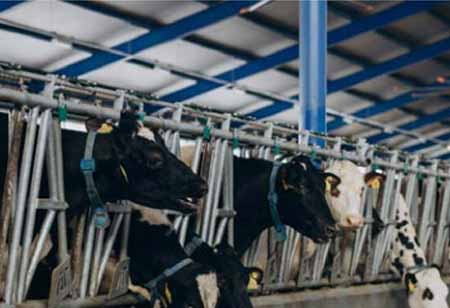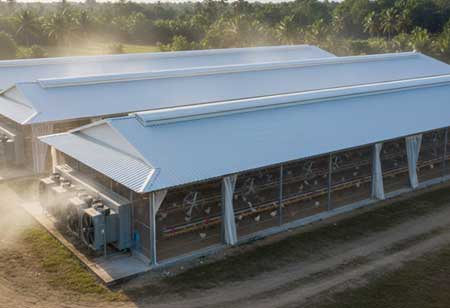Thank you for Subscribing to Agri Business Review Weekly Brief
Shaping the Future of Livestock Breeding Through Genomics in APAC
The continued advancements in genomic technologies and their strategic application hold the key to unlocking livestock's full potential in meeting the region's growing demands.

By
Agri Business Review | Wednesday, April 30, 2025
Stay ahead of the industry with exclusive feature stories on the top companies, expert insights and the latest news delivered straight to your inbox. Subscribe today.
Fremont, CA: The Asia-Pacific (APAC) region is witnessing a transformative shift in livestock breeding, driven by the rapid advancements and strategic application of genomics. As the demand for animal-derived protein continues to surge due to population growth and changing dietary preferences, ensuring efficient and sustainable livestock production has become paramount. Genomics is emerging as a powerful tool to change breeding programs, promising unprecedented gains in productivity, disease resistance, and overall animal health across the diverse livestock systems of APAC.
The Power of Genomic Selection
Traditional livestock breeding relies on phenotypic selection, which is often slow and imprecise due to the complex nature of traits such as milk yield and disease resistance. Advances in genomics have introduced a more accurate and efficient approach known as genomic selection (GS). GS leverages a dense array of genetic markers, particularly Single Nucleotide Polymorphisms (SNPs), to identify genetic variations associated with specific traits. This enables the prediction of young animals' genomic estimated breeding value (GEBV) before the characteristics are physically expressed. Genomic selection offers numerous advantages, including accelerated genetic gain, increased accuracy of selection, simultaneous improvement of multiple traits, enhanced disease resistance, improved feed efficiency, and better adaptation to the challenges posed by climate change.
Key Advancements and Applications of Genomics in APAC
The increasing use of high-density SNP chips and next-generation sequencing (NGS) technologies—fueled by declining costs and improved efficiency—enables more comprehensive genomic analyses of livestock populations. This progress allows for identifying a broader range of genetic markers and a deeper understanding of the genetic basis of complex traits. Notably, efforts are underway to develop genomic tools for indigenous cattle breeds in India and buffalo populations in Southeast Asia.
Furthermore, genomics is increasingly integrated with other “omics” technologies, including transcriptomics, proteomics, and metabolomics, providing a more holistic view of the biological mechanisms underlying important traits and enabling more informed breeding decisions. Advancements in gene editing technologies, particularly CRISPR-Cas9, offer additional opportunities to introduce desirable genetic variations with greater precision and speed, although regulatory challenges persist in some APAC countries. Research initiatives, such as those exploring gene editing to enhance growth rates in aquaculture species in Japan, underscore the potential of these technologies.
Improving disease resistance and animal welfare has become a key focus area, with researchers working to identify genetic markers associated with resilience to regionally prevalent diseases, such as haemorrhagic septicaemia in cattle and porcine reproductive and respiratory syndrome (PRRS) in pigs. There is growing interest in understanding the genetic basis of behavioral traits linked to animal welfare, such as social behavior and stress response. In aquaculture, a critical industry in the region, genomics is being applied to enhance growth rates, disease resistance, and feed efficiency in species such as tilapia and shrimp.
The development of user-friendly tools and platforms for data analysis and interpretation is being prioritized, making advanced technologies more accessible to breeders and farmers. Additionally, public-private partnerships and investments in capacity building are essential to successfully implementing genomic breeding programs. Collaborative efforts among research institutions, government agencies, industry stakeholders, and targeted training and education initiatives are vital to developing the necessary expertise in genomics and bioinformatics across the region.
Integrating genomics into livestock breeding practices marks a significant paradigm shift in APAC, driving advancements in productivity, disease resilience, and sustainable production. While challenges such as cost and infrastructure remain, the region is increasingly poised to leverage genomics' transformative potential to strengthen food security, promote economic growth, and support environmental sustainability.





